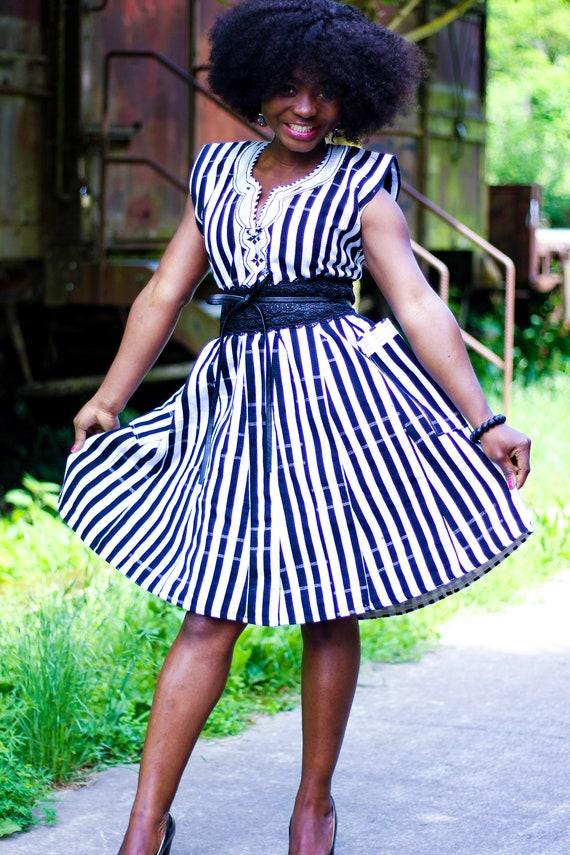Batakari (Smock) Dress: Ghana’s Iconic Symbol of prestige
In the heart of Ghana’s rich cultural tapestry lies the Batakari, a traditional smock dress revered for its intricate craftsmanship and deep-rooted meaning.Often donned during notable celebrations, ceremonies, and everyday life, the Batakari embodies the essence of Ghanaian identity and heritage. As the country continues to celebrate its vibrant traditions in a rapidly modernizing world, this iconic garment has evolved from simple attire to a powerful symbol of prestige and unity among the various ethnic groups. In this article, we explore the history, cultural significance, and contemporary relevance of the Batakari, shedding light on why it remains an enduring emblem of pride for Ghanaians both at home and abroad. Join us as we delve into the stories woven into the fabric of this beloved garment, revealing how it continues to inspire a sense of heritage and belonging in today’s society.
Exploring the Cultural Significance of Batakari Dress in Ghanaian Society
The Batakari, a traditional smock dress, holds a prominent place in Ghanaian culture, symbolizing not only identity but also social prestige. Rooted in the Northern regions of Ghana, this garment is characterized by its vibrant patterns and handwoven fabric, often made from cotton. The Batakari is not just attire; it serves as a cultural emblem that reflects the wearer’s status and heritage within the community. The dress is frequently associated with crucial ceremonies, festivals, and significant life events, amplifying its role in the social fabric of Ghana.Wearing the Batakari conveys a deep respect for tradition, showcasing the rich craftsmanship and history that accompany it.
In contemporary society, the significance of the Batakari transcends traditional boundaries, becoming a symbol of national pride and unity among Ghanaians. It is commonly worn by politicians, cultural leaders, and during national celebrations, reinforcing the idea that this garment is equally relevant in modern contexts. Key elements contributing to its cultural significance include:
- Symbol of Heritage: Represents the rich cultural legacy of the Northern Ghanaian people.
- Versatile Fashion: Adapted for diverse styles; from casual wear to high fashion.
- Unity in Diversity: Worn across ethnic groups, promoting inclusiveness.
- Economic Impact: Supports local artisans and the textile industry.
| Event | Significance |
|---|---|
| durbar Celebrations | Showcases traditional leadership wearing batakari as a mark of respect. |
| National Independence Day | Worn by citizens to promote national pride and unity. |
| Weddings | Symbolizes honor and cultural adherence during ceremonies. |
Craftsmanship and Sustainability: The Art of Batakari Weaving in Contemporary Fashion
the intricacies of Batakari weaving not only embody skill but also reflect a commitment to sustainability, intertwining artistry with responsible practices. Artisans from various communities meticulously craft each piece, employing traditional methods passed down through generations.This age-old technique utilizes natural fibers and dyes, minimizing environmental impact and promoting the preservation of cultural identity. As global fashion trends lean towards ethical consumption, the Batakari has emerged as a cornerstone of contemporary style, merging tradition with modernity and establishing itself as a staple in both local and international fashion scenes.
In recent years,partnerships between local artisans and designers have further amplified the relevance of this traditional craft. Through collaborative efforts, the Batakari is being reimagined with innovative designs that resonate with younger audiences while maintaining its authentic essence. Key elements influencing this resurgence include:
- Visual Aesthetics: Bold patterns and vibrant colors that celebrate Ghanaian heritage.
- Customization: Tailored pieces that allow for personal expression and unique fashion statements.
- Community Engagement: Empowering local weavers and ensuring fair trade practices.
As the Batakari dress continues its evolution, it stands as a testament to how craftsmanship can harmoniously coexist with environmental stewardship, reinforcing its legacy as both a cultural emblem and a forward-thinking fashion choice.
Empowering Local Artisans: Strategies for Promoting Batakari on Global Platforms
To successfully elevate the Batakari, a revered garment often seen as a badge of honor, it is essential to harness innovative marketing techniques that resonate with global audiences. Digital storytelling is a powerful tool that artisans can leverage to share their personal narratives and the cultural significance behind each piece. Crafting visually appealing and engaging content for social media platforms like Instagram and TikTok can create a connection with potential customers who appreciate authenticity. Additionally, collaborating with influencers and fashion enthusiasts who champion sustainable fashion can amplify visibility and credibility, allowing Batakari to gain traction in international markets.
Moreover, establishing partnerships with online marketplaces that focus on handcrafted, ethically produced goods can provide local artisans with a broader reach. By participating in global craft exhibitions and cultural exchange programs, artisans can showcase their skills while garnering valuable insights into international trends. To sustain interest, consistency in quality and design is crucial. A streamlined supply chain that maintains the integrity of craftsmanship will ensure that the beauty and tradition of Batakari are preserved, making it a sought-after item on a global scale.
the way Forward
the Batakari dress stands as a testament to Ghana’s rich cultural heritage and its enduring significance in modern fashion and social identity. Far beyond a mere garment, this iconic smock embodies the pride, craftsmanship, and prestige associated with the various ethnic groups of northern Ghana. As it continues to gain recognition both locally and internationally, the Batakari not only celebrates tradition but also adapts to contemporary styles, ensuring its relevance for future generations. With increasing interest from designers and consumers alike, the Batakari is poised to further solidify its status as a symbol of cultural pride and sophistication in ghana and beyond. As we embrace and promote such quintessential pieces, we contribute to the preservation and appreciation of our vibrant heritage in an ever-globalizing world.
